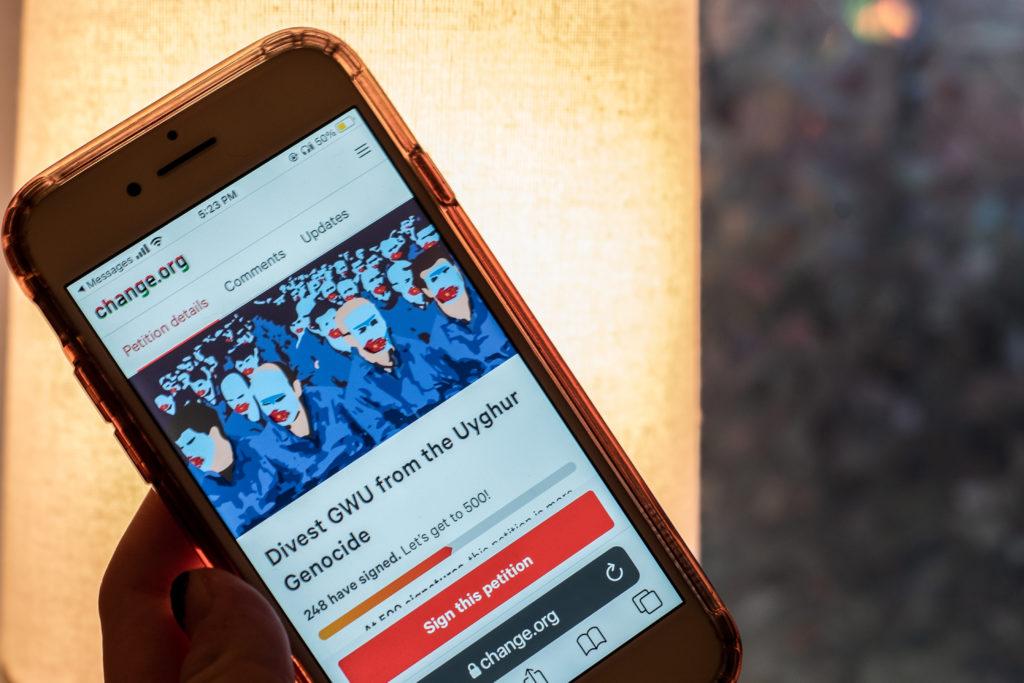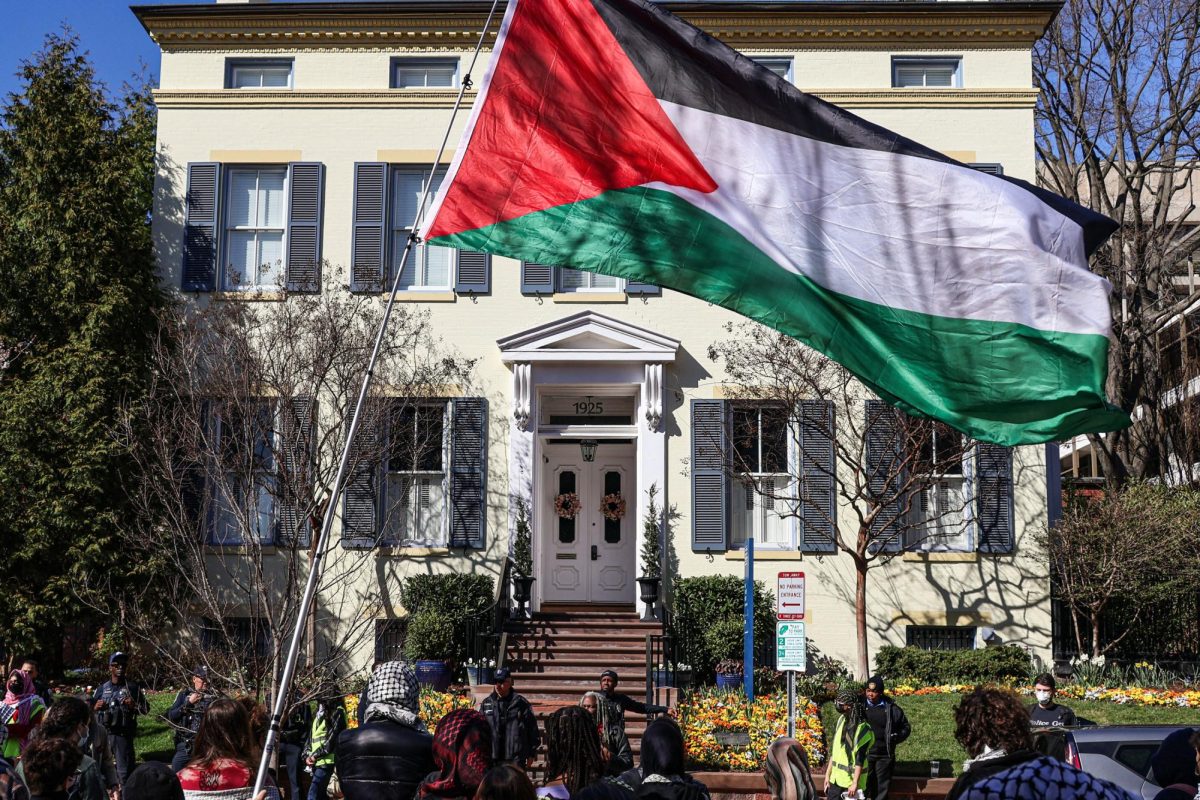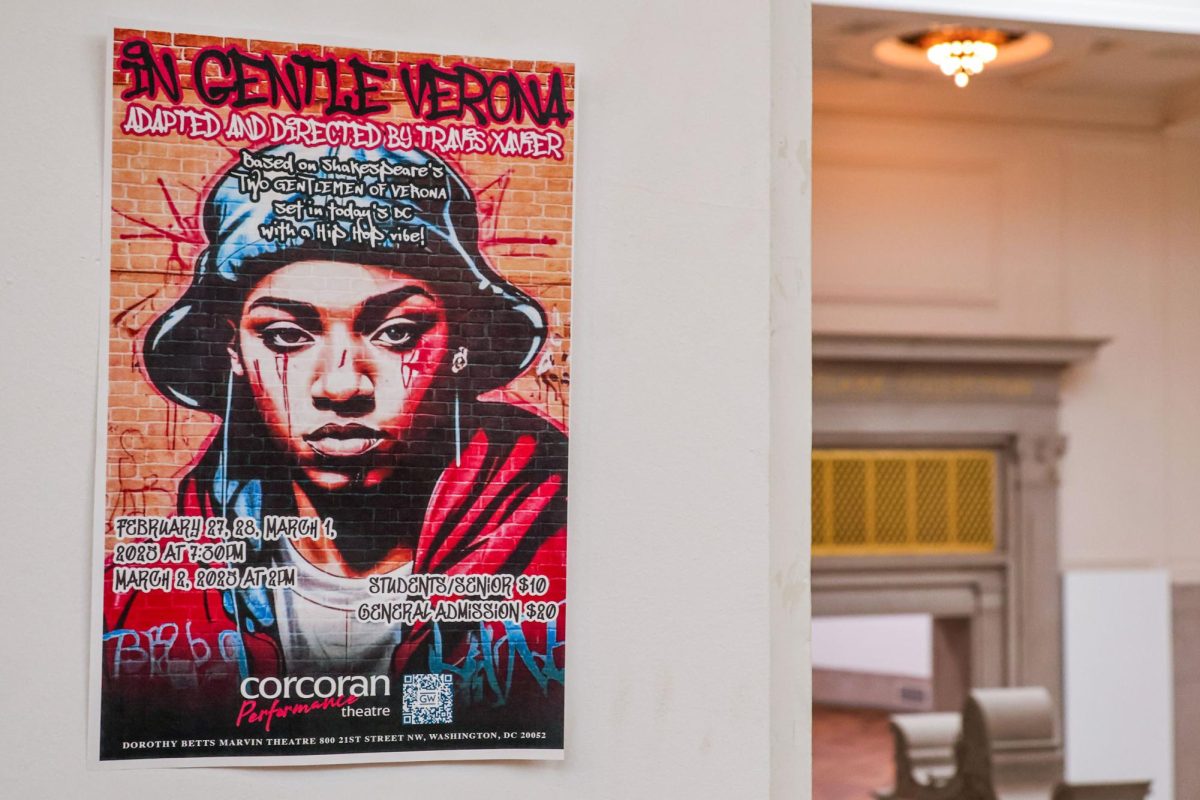Nearly 250 people have signed a petition calling on officials to divest from companies “complicit” in the genocide of the Uyghur people in China.
The petition – launched last Sunday by GW College Democrats, GW College Republicans, the GW Committee on Divestment from the Uyghur Genocide, the Uyghur Human Rights Initiative at GW Law and the Athenai Institute – demanded that GW reevaluate its endowment and research funding tied to companies that benefit from the forced labor of the Uyghur people. The groups launched the effort in the wake of officials removing posters from campus denouncing the Chinese Communist Party’s human rights abuses against the Uyghurs, which officials have since apologized for doing.
The U.S. State Department declared last year that the Chinese government was committing “genocide” and “crimes against humanity” against the Uyghur people.
Students are planning a protest in Kogan Plaza on Tuesday at noon to call on officials to investigate GW’s endowment for potential investments in companies that have a stake in the Uyghur genocide.
The posters’ removal sparked a debate that gained national attention about broader concerns over Chinese censorship at U.S. colleges. The petition states that affiliates with the Chinese government monitor college campuses and fund companies that are complicit in the genocide.
“Officials of the Chinese government have sought to silence criticism of their policies on U.S. college campuses by pressuring University administrators to stifle student speech,” the petition reads. “The George Washington University, and all U.S. universities, have obligations to protect their students and to act as moral leaders.”
The petition’s signatories demanded that interim University President Mark Wrighton and the Board of Trustees meet with the groups who signed the petition and implement a strategy to protect students’ freedom of speech.
Officials declined to comment on what action the University will take to address the petition’s demands and which of GW’s investments hold ties to the genocide of the Uyghurs.
A report published in 2020 from the Australian Strategic Policy Institute stated that at least 82 companies including the Volkswagen Group, Calvin Klein, Google, Amazon, Apple and Gap profit from factories that reportedly used forced labor practices of Uyghurs.
Senior Louie Kahn, the executive director of GW College Democrats and a member of The Hatchet’s Board of Directors, said College Democrats collaborated with College Republicans to condemn the Uyghur genocide and address the international human rights concern in a bipartisan statement. He said pushing GW to divest from these corporations has been a “long-standing effort” by College Democrats and other organizations on campus, but the recent poster controversy and the ongoing Beijing Olympics helped fuel the effort.
He said Confucius institutes across the country – Chinese government-funded academic centers, which included a location on the Foggy Bottom Campus that officials closed in July – have influenced colleges that receive funding from the Chinese government, which could try stifling students’ freedom of speech.
Student government bodies at peer institutions, like Georgetown University’s Student Association, have called on their universities to divest from companies complicit in the Uyghur genocide over the last year.
Senior Patrick Burland, the chair of GW College Republicans, said the petition’s signatories sought to urge the University to take a “solid stance” against the genocide publicly and work to protect freedom of speech on campus. He said the petition pushes officials to take a “closer look” at their finances because it’s not clear whether GW could be investing in corporations that operate with forced labor policies.
“I think it’s important that while we are an institution of higher learning, we engage in academic research in a humanitarian manner so that no one is being exploited or having their lives taken or abused,” Burland said.
Burland said he is looking forward to working with administrators on these issues and ensuring they are as transparent as possible about who funds GW’s endowment. He said the bipartisan petition demonstrates how organizations are committed to combatting the Chinese Communist Party’s influence on American campuses through demanding divestment from companies complicit with the Uyghur genocide.
“If we’re going to be serious about this, we need to have a game plan from the administration about what divesting looks like in a reasonable amount of time, making sure that they audit the endowment and all the portfolio to make sure that we don’t have GW dollars going toward genocide,” Burland said.
Juan Carlos Mora, the chair of the GW Committee on Divestment from the Uyghur Genocide and a junior majoring in philosophy, said he is planning the protest to call for divestment from companies complicit in the Uyghur genocide in hopes of bringing attention to this issue. He said the group of organizations that signed the petition is basing the divestment campaign on Sunrise GW’s successful movement to push GW to commit to fossil fuel divestment by 2025 after years of student activism.
He said the signatories of the petition sent the petition to the Board of Trustees and Wrighton to urge them to take action.
“It’s really important that people are aware of the divestment movement that’s going along,” Mora said. “But I think it’s also really important to highlight that you can’t ignore the worries and fears of our [Asian American Pacific Islander] students and AAPI community on campus.”
Zachary Blackburn contributed reporting.








